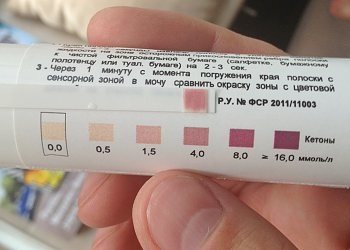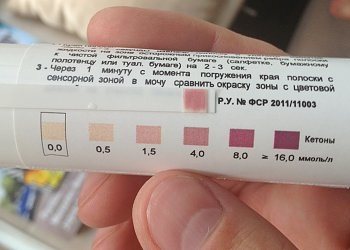What should normal urine look like?
The content of the article
In healthy people, urine does not look repulsive. Normally, the liquid is almost transparent, has a light yellow color, and a slight odor similar to the smell of sea water. An unpleasant smell of urine indicates pathologies in various organs - not only in the kidneys and bladder, but also in the liver, reproductive system, etc.
Without attaching importance to this symptom, you can lead to a serious illness such as cancer, hepatitis, a dangerous sexually transmitted infection, etc. Therefore, if you notice that your urine has begun to smell unpleasant or strong, consult a doctor.
Pregnant woman
In the last weeks of pregnancy, the expectant mother strives to prepare her apartment or house as much as possible for the arrival of a new family member. Scientists call this sign of impending birth nesting syndrome. Many women observe signs of the syndrome from the thirtieth week of pregnancy, but at the 39-40th week nesting reaches its maximum point. Pregnant women strive to do general cleaning and repairs, re-stick wallpaper and purchase many new things that, in their opinion, are simply necessary in the house. After giving birth, many purchases cause confusion. The reason for this behavior is an increase in the level of adrenaline and norepinephrine in the body. These hormones are produced by the adrenal glands; they are necessary not only for the woman, but also for the baby to prepare for the upcoming birth.
Why does urine smell like acetone?
The cause of the unpleasant odor is the synthesis of ketone bodies formed when there is a lack of glucose or a violation of its breakdown. The body, which does not receive enough of this nutrient from food and liver glycogen, begins to break down stored fat.
Ketone bodies, which poison the patient, appear in the following conditions:
- Diabetes mellitus. The urine of patients smells like a mixture of acetone and fruit;
- Strict diets that deprive the body of carbohydrates;
- Diseases of the digestive tract that impede the absorption of glucose;
- Thyrotoxicosis, which sharply increases the metabolic rate, incl. carbohydrate;
- Liver disease, in which it cannot break down glycogen normally;
- Pregnancy accompanied by toxicosis.
If you have symptoms of diabetes and thyrotoxicosis, you need to make an appointment with an endocrinologist. This doctor treats endocrine disorders in the body. The doctor will prescribe a biochemical blood test, ultrasound of the thyroid gland, ultrasound of the pancreas, blood sugar test, urine test, blood test for the hormone TSH. After this, he will make an accurate diagnosis.
Toxicosis during pregnancy is considered a complication and also requires treatment. With symptoms of toxicosis, you need to contact an obstetrician-gynecologist and take a blood biochemistry test.
Acetonuria
If the smell of acetone in urine appears for physiological reasons, then the health hazard is minimal. But if the urine smells unpleasant for a long time, you should seek advice from a specialist, since the smell of acetone can be a symptom of serious illnesses.
In human waste products excreted by the kidneys, this aroma is detected most often in adult female patients. Among children, acetone is mainly found in children from 1 to 4 years old.
Acetonuria is a pathology in which acetone bodies appear in the patient’s urine. They are found in high concentrations due to weak oxidative processes affecting organic compounds, including fats, fat-like substances and proteins. The presence of an odor in urine is not always a signal indicating illness. There is an acceptable level of acetone particles - up to 50 mg/day.
Factors influencing the occurrence of acetonuria:
- unbalanced diet;
- drinking a minimum amount of water, “dry” or therapeutic fasting, dehydration;
- diseases accompanied by prolonged fever, prolonged infection of the body by pathogenic microbes;
- high-intensity physical exercise;
- use of medications that have an indirect effect on the digestive system and organs of the genitourinary system.
The smell in the urine of patients is directly related to their diet (refusal to consume carbohydrates and fats).
Additional reasons for the presence of acetone in urine:
- increased level of pancreatic protein hormone in the blood;
- painful condition accompanied by fever and chills;
- infectious and bacterial diseases (urethritis, cystitis, pyelonephritis);
- sexually transmitted diseases - chlamydia, gonorrhea and other pathologies;
- general anesthesia;
- diseases of the endocrine gland (syndrome caused by hyperfunction of the thyroid gland);
- alcohol poisoning;
- life-threatening condition - coma;
- exhaustion of the body;
- anemia;
- inflammation of liver tissue caused by viruses;
- tuberculosis;
- oncological diseases;
- pathologies in the gastrointestinal tract, liver, pancreas;
- uncontrollable vomiting;
- late toxicosis of pregnancy;
- menopause;
- diseases associated with improper functioning of the human immune system.

Test for the determination of acetone (ketones) in urine.
Another reason for the smell of acetone in urine is a decrease in muscle activity and a sedentary lifestyle. To eliminate the symptom, it is necessary to balance your diet, drink a sufficient amount of water (at least 1.5 liters), and perform light physical activity.
A sharp, unpleasant smell of urine is not the norm!
The release of bad-smelling urine is accompanied by:
- Diseases in which a large number of microbes multiply in the urinary tract.
In addition to the smell, patients pay attention to turbidity and mucus in the urine. Lower back pain, pain when urinating and other unpleasant symptoms often occur. The cause can be determined by passing a urine test and undergoing an ultrasound of the pelvis and an ultrasound of the bladder. - Gardnerellosis
is a disease of the genital tract caused by the microorganism Gardnerella. Since the disease initially develops in the vagina, women suffer from this disease. When the infection spreads to the bladder, urine is released that smells like rotten fish. Gardnerella can be detected by taking a smear for a group of infections - femoflora 16 indicators. - Sexual infections
. With gonorrhea, chlamydia, trichomoniasis, the urine takes on an unpleasant smell of rotten onions or garlic. The stench appears even with indolent forms of the disease, being a sign of infection.
You can contact a gynecologist or urologist for diagnosis and treatment of sexually transmitted infections. Women should definitely visit a gynecological office if signs of an STI appear, since these infections cause infertility and cancer of the reproductive organs.
Liver odor of urine
In patients with liver damage, mercaptan is formed in the body, the smell of which is difficult to confuse. It is so nasty that it is added to natural gas to detect leaks.
It is difficult to describe what mercaptan smells like. It is said to reek (this is the most appropriate description) of mice and decaying flesh. The appearance of such a fetid mixture indicates a severely advanced form of the disease. This is also indicated by a change in the color of urine, which darkens and foams, becoming like beer. Changes in the liver can be detected by undergoing an ultrasound of the liver. Unfortunately, ultrasound alone may not be enough, then you will have to undergo various procedures - x-rays, biopsy, liver tests, etc. You can undergo an ultrasound without a referral, and then visit the right doctor with the results.
Diagnostic measures
When urine smells like acetone in men or women, laboratory and instrumental examinations are performed. Be sure to check the condition of your urine and blood - either at the clinic or using test strips at home.
Outpatient settings are preferable because they identify not only the presence of ketones, but also their ratio. Test strips only reveal the presence of acetone and its approximate volume. Each of the studies presented is carried out in the morning - the first portion of urine is studied. As instrumental methods, ultrasound of the peritoneal organs is performed. If there are suspicions of other pathologies or treatment at the initial stage was ineffective, additional examinations are carried out - CT, MRI, tests for tumor markers.
Changes in odor due to metabolic disorders
In such conditions, the smell of urine can change in any direction. The urine may begin to smell like beer, sugar, rotten cabbage, sweat, mold, and sulfur.
- For example, a fishy smell of urine, a sign of the development of trimethylaminuria. The substance trimethylamine smells like fish.
- If your urine smells like mice, then you need to be tested for phenylketonuria, a genetic disease associated with impaired phenylalanine metabolism. This amino acid, when released into the urine, causes its odor to change to that of a mouse.
- The urine begins to smell like maple syrup or even more like burnt sugar due to a hereditary pathology - leucinosis. This is why this condition is called maple syrup disease. In this case, the activity of amino acid oxidation decreases. The disease manifests itself already in infancy.
Acetonuria
If the smell of acetone in urine appears for physiological reasons, then the health hazard is minimal. But if the urine smells unpleasant for a long time, you should seek advice from a specialist, since the smell of acetone can be a symptom of serious illnesses.
In human waste products excreted by the kidneys, this aroma is detected most often in adult female patients. Among children, acetone is mainly found in children from 1 to 4 years old.
Acetonuria is a pathology in which acetone bodies appear in the patient’s urine. They are found in high concentrations due to weak oxidative processes affecting organic compounds, including fats, fat-like substances and proteins. The presence of an odor in urine is not always a signal indicating illness. There is an acceptable level of acetone particles - up to 50 mg/day.
Factors influencing the occurrence of acetonuria:
- unbalanced diet;
- drinking a minimum amount of water, “dry” or therapeutic fasting, dehydration;
- diseases accompanied by prolonged fever, prolonged infection of the body by pathogenic microbes;
- high-intensity physical exercise;
- use of medications that have an indirect effect on the digestive system and organs of the genitourinary system.
The smell in the urine of patients is directly related to their diet (refusal to consume carbohydrates and fats).
Additional reasons for the presence of acetone in urine:
- increased level of pancreatic protein hormone in the blood;
- painful condition accompanied by fever and chills;
- infectious and bacterial diseases (urethritis, cystitis, pyelonephritis);
- sexually transmitted diseases - chlamydia, gonorrhea and other pathologies;
- general anesthesia;
- diseases of the endocrine gland (syndrome caused by hyperfunction of the thyroid gland);
- alcohol poisoning;
- life-threatening condition - coma;
- exhaustion of the body;
- anemia;
- inflammation of liver tissue caused by viruses;
- tuberculosis;
- oncological diseases;
- pathologies in the gastrointestinal tract, liver, pancreas;
- uncontrollable vomiting;
- late toxicosis of pregnancy;
- menopause;
- diseases associated with improper functioning of the human immune system.

Test for the determination of acetone (ketones) in urine.
Another reason for the smell of acetone in urine is a decrease in muscle activity and a sedentary lifestyle. To eliminate the symptom, it is necessary to balance your diet, drink a sufficient amount of water (at least 1.5 liters), and perform light physical activity.
Orange urine in women: causes of color change Why can urine in women smell like ammonia? For what reasons can urine foam in women?
Reasons for changes in urine odor in children
In newborn babies, urine should not normally have a strong smell. It rather looks more like water. The older a child gets, the more his urine approaches the composition and quality of an adult. Consequently, any change in the color, odor and transparency of this fluid requires contacting a pediatric urologist.
The reasons for changes in the properties of urine in children are the same as in adults. The child can also get a genitourinary infection, a cold in the kidneys, or develop diabetes. Often the cause of foul odor is dehydration due to vomiting or high body temperature. In this case, the concentration of urine changes. The problem goes away when you establish a drinking regime.
In infants, the smell of urine is affected by the mother's food; for example, cabbage can cause an unpleasant smell of urine. Another reason is changing the formula or introducing new products into complementary foods.
The smell of acetone in the urine of women during pregnancy
Nausea, vomiting, excessive salivation, the smell of acetone from the mouth and urine are signs of early toxicosis in pregnant women.
In addition, acetone in the urine of pregnant women sometimes indicates gestational diabetes. This is a variant of diabetes that occurs only during pregnancy. If left untreated, ketonemia occurs. The urine smells like acetone.

Gestational diabetes is treated with diet, and if ineffective, with insulin injections.
When a change in urine odor is not dangerous
The appearance of an unpleasant odor in urine can also occur in healthy people. He is called:
- Food products
- spicy, salty foods, alcohol, asparagus, smoked meats, etc. If the problem is related to food, then after two days there will be no trace of the problem. - Medicines
. The smell can be caused by vitamins, vitamin B smells especially unpleasantly, antibiotics - ciprofloxacin, ampicillin, etc. A day after stopping taking the drugs, the symptom will go away.









